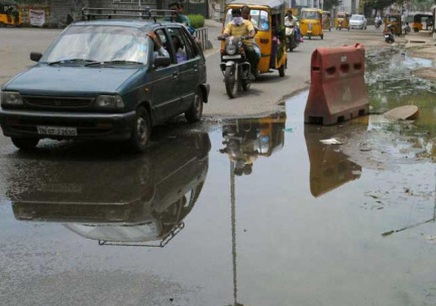Delhi’s Chief Secretary, Naresh Kumar, has come under intense scrutiny from both Lieutenant-Governor V.K. Saxena and Water Minister Atishi. This critique centres on the severe failures in the city’s civic infrastructure, notably exacerbated during the recent monsoon season.
A letter from Raj Niwas highlighted that the city’s infrastructure issues are emblematic of a profound neglect and a significant lapse in senior management oversight. According to the communication from Saxena’s Principal Secretary, Ashish Kundra, the drains in Delhi have suffered from years of neglect, with de-silting operations woefully overdue. Choked sewer lines have led to recurrent flooding, even in areas that were initially planned to be flood-resistant. The Lieutenant-Governor’s letter criticises this neglect as indicative of a broader failure in managerial responsibility.
Concurrently, Water Minister Atishi has reported a surge in complaints regarding sewage overflow across various city sectors. The overflow has not only caused significant inconvenience but is also raising alarms about potential contamination of drinking water. Atishi warned that, if not promptly addressed, this situation could precipitate a serious public health crisis.
In response, officials have urged Chief Secretary Kumar to mobilise the full extent of government machinery to mitigate these issues and prevent further deterioration. They have recommended the assignment of specific responsibilities to senior officials and insisted on regular ground inspections to ensure prompt resolution.
The Aam Aadmi Party (AAP) has seized the opportunity to criticise the Lieutenant-Governor, accusing him of reiterating concerns previously raised by the elected government. The party’s statement asserts that while Urban Development Minister Saurabh Bharadwaj had directed Kumar to provide timelines for the de-silting of drains, the Chief Secretary was allegedly preoccupied with excuses rather than actionable solutions. Furthermore, allegations of corruption and misgovernance surrounding de-silting contracts have been levelled against the Lieutenant-Governor’s preferred officers, though no concrete actions have been taken against them thus far.
In a counterpoint, Delhi BJP President Virendra Sachdeva has accused the Delhi government of neglecting its own responsibilities, thus exacerbating the crisis. As the situation unfolds, the absence of a response from Raj Niwas only deepens the scrutiny surrounding the administration’s handling of the ongoing infrastructural collapse.
This situation underscores the urgent need for effective governance and accountability in managing urban infrastructure, especially as cities grapple with the compounded challenges of climate change and population growth.




